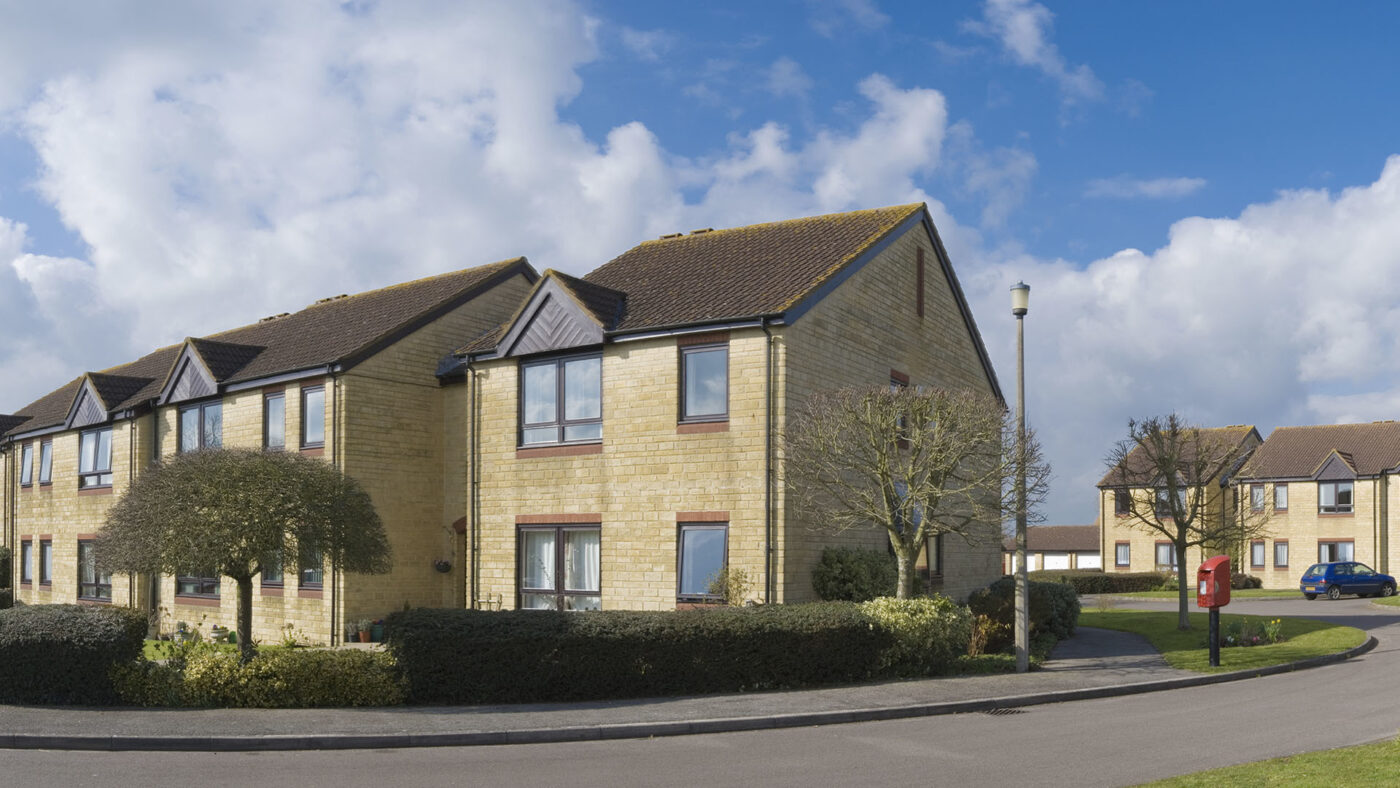How are housing associations tackling the housing crisis in Wales?

In 2022, 23% of people in Wales live in relative income poverty. Rising prices and high levels of inflation are driving a cost of living crisis that is putting people on low incomes under extraordinary financial pressures. People who are homeless and those fleeing conflict from Ukraine and Afghanistan urgently need places to live too.
More than ever, people in Wales need high quality, safe, affordable homes.
Meeting the demand for new housing is no easy task. Between 2016 and 2021, housing associations built around 1,200 homes every year. Now, StatsWales research projects that Wales will need roughly 7,400 additional houses every year to 2024 to meet growing need - including 3,500 affordable housing units.
How are housing associations going to meet this demand?
Housing associations exist to provide high quality, safe, affordable homes. In Wales there are currently large numbers of people on waiting lists for affordable homes, as we don't yet have enough for everyone who needs them - but plans are in action to develop more places for people to live.
Most housing associations work alongside local authorities to rent homes to people who cannot afford to buy their own properties, cannot afford to rent from a private landlord, or need a home with special features. Many that work in the same area also use a single common housing register along with local authorities, to allocate housing in specific parts of Wales. This means that people only have to make one application for social housing in the place they want to live in. Two - Tai Tarian and Cartrefi Conwy - also run the housing registers (also known as waiting lists) on behalf of their local authorities.
Across Wales, housing associations currently provide almost 165,000 homes to 10% of the population. But with more and more people in need of affordable homes, housing associations cannot - and do not - just focus on their current tenants. They also have a duty to build new properties for people to live in.
Welsh Government and the social housing sector in Wales are committed to delivering 20,000 homes over the current Senedd term (2021 to 2026) to meet the projected need. Building thousands of new homes every year requires a lot of investment, however, which is why you sometimes see news reports about housing associations receiving new funding from the government.
Housing associations are not for profit organisations that are funded by rent, grants and private borrowing. To meet the Welsh Government target, housing associations could not simply just increase their tenants’ rent, or loan millions of pounds overnight - they need government support.
Housing associations have long campaigned for increased investment from Welsh Government to achieve their vision of a Wales where good housing is a basic right for all. In response, the Welsh Government has committed to spending more than £1bn on building new social housing over three years (2022-2025) to meet the projected housing need. This means that housing associations now have the funds to commit to developing all of the social homes Wales desperately needs.
If funding isn’t so much of an issue, why can’t social houses be built quicker to meet the demand?
Building a home is a long, careful and complex process. Even when the housing association already has a plan - and has been able to acquire land at a challenging and competitive time - for a development which takes into consideration environmental and local community impact, the planning system that all housing developers must deal with is complex, and housing associations have an added responsibility to ensure that all new homes are high quality, low carbon and demonstrate excellent environmental management in line with Welsh Government standards.
Associations are also currently facing huge increases in the cost of materials, supply chain disruption, and challenges in training and recruiting specialist staff at the pace required.
That’s not to say though that housing associations aren’t building homes, however. Their teams continue to invest their time and expertise into building great places to live - it can just take longer than usual in the current climate.
Housing associations also have extra considerations that need to be taken into account when it comes to social housing developments that other developers may not face. Put simply, housing associations build more than just homes - they build communities. Each organisation is committed to developing relationships with tenants and community members, working closely with local businesses, and working with environmental specialists to pave the way for carbon neutral living.
In 2018/19 housing associations spent approximately £27.4m on community regeneration projects, with £2.8m of this being spent on helping communities access employment and learning opportunities.
In the same time period, housing associations spent £17.9m on reducing carbon emissions in their existing homes and further work towards achieving the Welsh Housing Quality Standard. The development of low carbon housing is a key priority for housing associations - not only is it better for the environment, it can also prevent worsening fuel poverty and health conditions related to poor housing.
Could housing associations just build basic houses that give people a roof over their heads for now?
No - housing associations exist to deliver high quality and affordable housing, and build strong, resilient communities where people can thrive. It goes against the principles of housing associations - and the values of many of the people who work for an association - to deliver anything less.
Alongside this, each development must meet the Welsh Development Quality Requirement set by Welsh Government, under which homes need to be:
- high quality, innovative and sustainable;
- flexible and responsive of to the needs of the occupants; and
- safe and secure.
The housing crisis is not just about a lack of dwellings for people to live in - our sector exists to ensure people have good, stable homes for however long they need them.